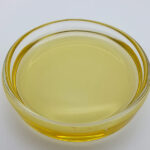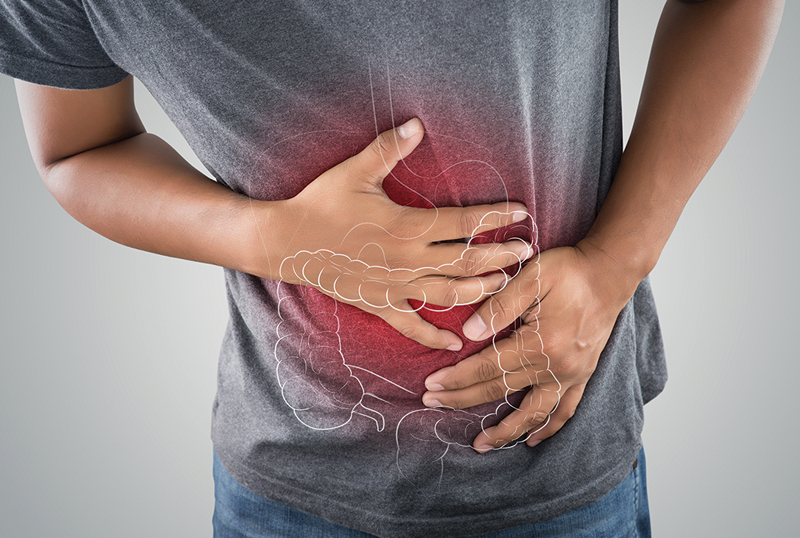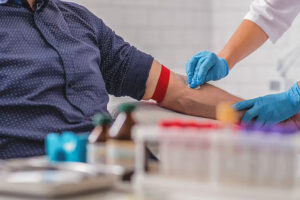Gastric ulcers are sores in the lining of the stomach or small intestine. They occur when the mucus that lines the stomach stops working as it should. The stomach produces strong acid that helps digest food and protects against germs. If this layer wears down and stops working effectively, the acid can damage the stomach tissue and cause an ulcer. One in ten people in Western countries will have an ulcer in their stomach or small intestine at some point in their life. Gastric ulcers are relatively easy to cure but can cause significant problems if left untreated.
Essential facts about gastric ulcers
- Gastric ulcers are common in Western countries and easy to treat but can become severe.
- The most common causes are bacteria and nonsteroidal anti-inflammatory drugs ( NSAIDs ).
- The classic symptom of a gastric ulcer is indigestion.
- Treatment for gastric ulcers usually focuses on removing the cause.
Symptoms
The classic symptom of a gastric ulcer is dyspepsia. Indigestion causes discomfort or pain in the stomach area. Heartburn can be caused by gastroesophageal reflux disease ( GERD ) or acid reflux. It occurs a little above the stomach and is felt in the lower part of the chest. It should be noted that not all gastric ulcers cause indigestion.
The symptoms of gastric ulcer tend to differ from those of heartburn, but the signs may not be clear. An ulcer tends to cause burning in the stomach area, sometimes described as a “biting” or “stinging” type. Some people describe a feeling of hunger.
Other symptoms include:
- Weightloss;
- Nausea and vomiting;
- Stop eating due to pain;
- Burping;
- Swelling;
The pain can be relieved by eating, drinking or taking antacids. Some gastric ulcers go unnoticed and do not show the typical pain of indigestion. Some can cause a hole in the stomach wall, known as perforation and is a severe condition. Gastric ulcer symptoms often change over time and can be challenging to detect.
Diet
People at risk of developing stomach ulcers should include more of the following nutrients in their diet:
Fruits and vegetables
Eating various fruits and vegetables is key to a healthy digestive tract lining. These are rich in antioxidants, inhibit acid secretion, and contain cytoprotective and anti-inflammatory properties. A 2017 study indicates that these are all critical factors in preventing and treating ulcers.
Fibre
Diets rich in soluble dietary fibre reduce the risk of developing gastric ulcers.
Probiotics
Foods with active bacterial content, such as probiotic yoghurt, can help reduce a Helicobacter pylori ( H. pylori) infection. Probiotics have been shown to improve indigestion symptoms and antibiotic side effects slightly.
Vitamin C
This powerful antioxidant can be effective in helping to eradicate H. pylori, especially when taken in small doses over a long time. For example, fruits, vegetables and legumes such as oranges and tomatoes contain high levels of vitamin C.
Zinc
This micronutrient is crucial for maintaining a healthy immune system and wounds healing. Beef, Oysters and spinach contain high levels of zinc.
Selenium
It can reduce the risk of infection complications and promote healing. For example, it is recommended to consume Brazil nuts, yellowfin tuna and halibut for their high selenium content.
Avoiding alcohol and caffeine can also help lower your risk, as both cause the body to produce more gastric acid. This can cause gastric ulcers.
It is essential to use diet to support a treatment plan to obtain the most effective result, rather than relying on diet alone.
Causes
The two leading causes of gastric and small intestine ulcers are:
- H. pylori bacteria
- A class of pain relievers called nonsteroidal anti-inflammatory drugs (NSAIDs)
Here are some less common causes of stomach ulcers:
- Excessive heartburn or hyperacidity: This can occur for various reasons, including smoking, genetics, stress and some foods.
- Zollinger-Ellison syndrome: This rare disease is caused by the production of excess acid in the stomach.
Risk factor’s
Certain behaviours and factors increase the chances of developing a gastric ulcer.
These include:
- Frequent use of steroids;
- To smoke;
- Excessive calcium production or hypercalcaemia;
- Genetics;
- Consume alcohol frequently.
Gastric ulcers are more common in people over 50 years of age. It is possible to develop a gastric ulcer at any age, but they are much less common in children. The risk in children is more significant if their parents smoke.
NSAIDs and stomach ulcers
A group of pain relievers known as NSAIDs risk developing stomach ulcers. The two best-group NSAIDs are aspirin and ibuprofen.
The risk of ulceration increases if the drugs are taken in high doses or for a long time. Stronger NSAIDs, such as prescription NSAIDs, have a higher risk of developing gastric ulcers than OTC NSAIDs.
Treatment
If your doctor thinks there is a gastric ulcer, you can try to eliminate the cause by doing the following:
- Changing the type of analgesic if you consider that the reason is NSAIDs
- Use the “diagnose and treat” strategy if you think the cause is H. pylori bacteria
Once the cause is removed, the symptoms of gastric ulcers can be treated by protecting the ulcer from acid while it heals. Medicines a doctor might prescribe include:
- Proton pump inhibitors (PPIs) block the cells that produce acid
- H2 receptor antagonists prevent the stomach from producing excess acid
- Antacids or alginates. You can buy these medications over the counter or online.
- Medicines that protect the lining of the stomach, such as Pepto-Bismol, which you can buy online
Symptoms usually go away quickly after treatment. However, treatment should be continued, especially if the ulcer is due to H. pylori infection. It is also relevant to avoid drinking alcohol, smoking tobacco and consuming any trigger foods during treatment.
Surgical treatments
In some instances, surgery may be an option. For example, if the ulcer keeps coming back, doesn’t heal, bleeds, or doesn’t allow food to leave the stomach.
Surgery may include:
- Eliminate ulcer
- Tie off bleeding blood vessels
- Stitch tissue from another area of the body into the ulcer
- Cut the nerve that controls gastric acid production
Complications of gastric ulcers, such as bleeding or perforation, are rare, however, any of these complications require urgent medical attention.






















Add Comment